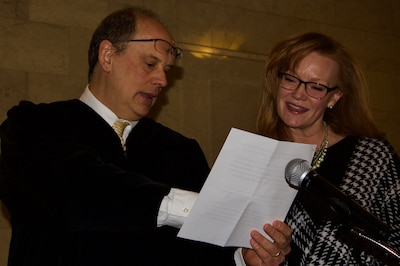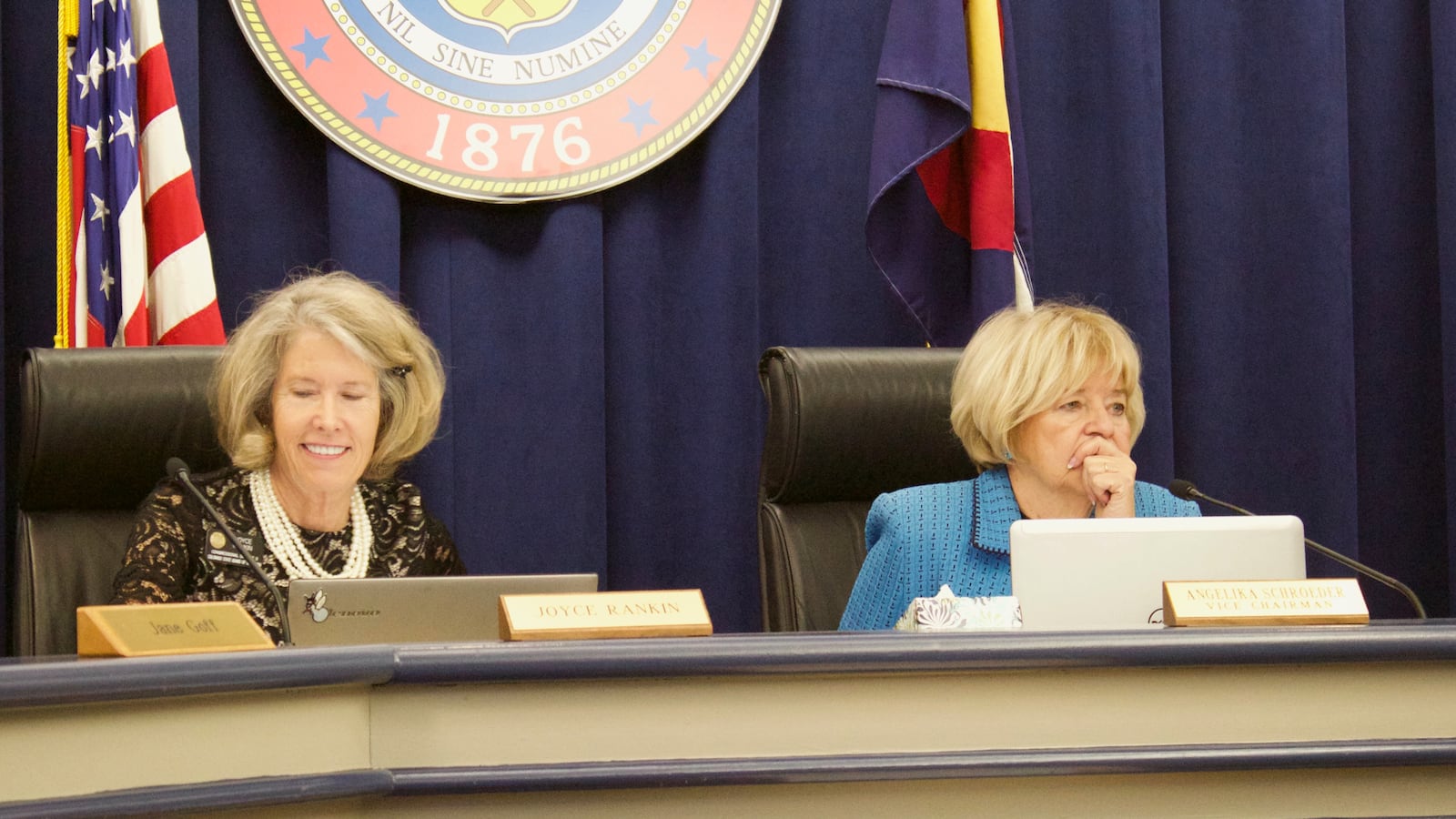Angelika Schroeder was selected with unanimous support Wednesday to serve as chair of the State Board of Education, the first action taken by a newly constituted board under Democratic control for the first time in nearly 50 years.
Joyce Rankin, a Republican, was unanimously chosen to be the board’s vice chair.
Schroeder and Rankin in separate interviews praised the way the board has worked in a bipartisan fashion and pledged to work cooperatively.
“We’ve been a bipartisan board up until now,” Schroeder said. “And I think we’ll continue to be a bipartisan board.”
The Boulder Democrat downplayed the historic nature of Democrats taking control of the board.
“I know folks would like to make a big deal about this, but in this room I don’t think it needs to be a big thing,” Schroeder said. “We all bring our own personal values to the table.”

The shift in partisan control comes after a November election that saw Democrat Rebecca McClellan narrowly beat Republican incumbent Debora Scheffel. McClellan, a former Centennial city council member, ran on a promise of respecting local control of school boards and listening to classroom teachers and principals.
McClellan raised thousands of dollars more than Scheffel and was backed by both the state’s teachers union and Democrats for Education Reform, two significant players in education politics that usually don’t see eye to eye.
While the Democrats have partisan control by a one-vote margin, sharp divisions exist among the Democratic board members. Denver Democrat Val Flores has a history of voting with Republican members on controversial issues such as testing.
Flores on Wednesday said she believed her voting record followed the Democratic platform.
“Read the Democratic platform,” she said. “You’ll see I’m voting with Democrats. Reformers are kind of out of sync with our Democratic ideas and platform.”
The shift of partisan control comes at a critical juncture. The board is set to begin addressing how to fix the state’s lowest performing schools and review the state’s academic standards, including the politically controversial Common Core State Standards.
The state education department also must submit a plan to the federal government detailing how it plans to use federal funds to meet the expectations laid out in the nation’s new education law, the Every Student Succeeds Act.
“We have a lot of work to do this year,” Rankin said. “So we’re going to have to work together.”

